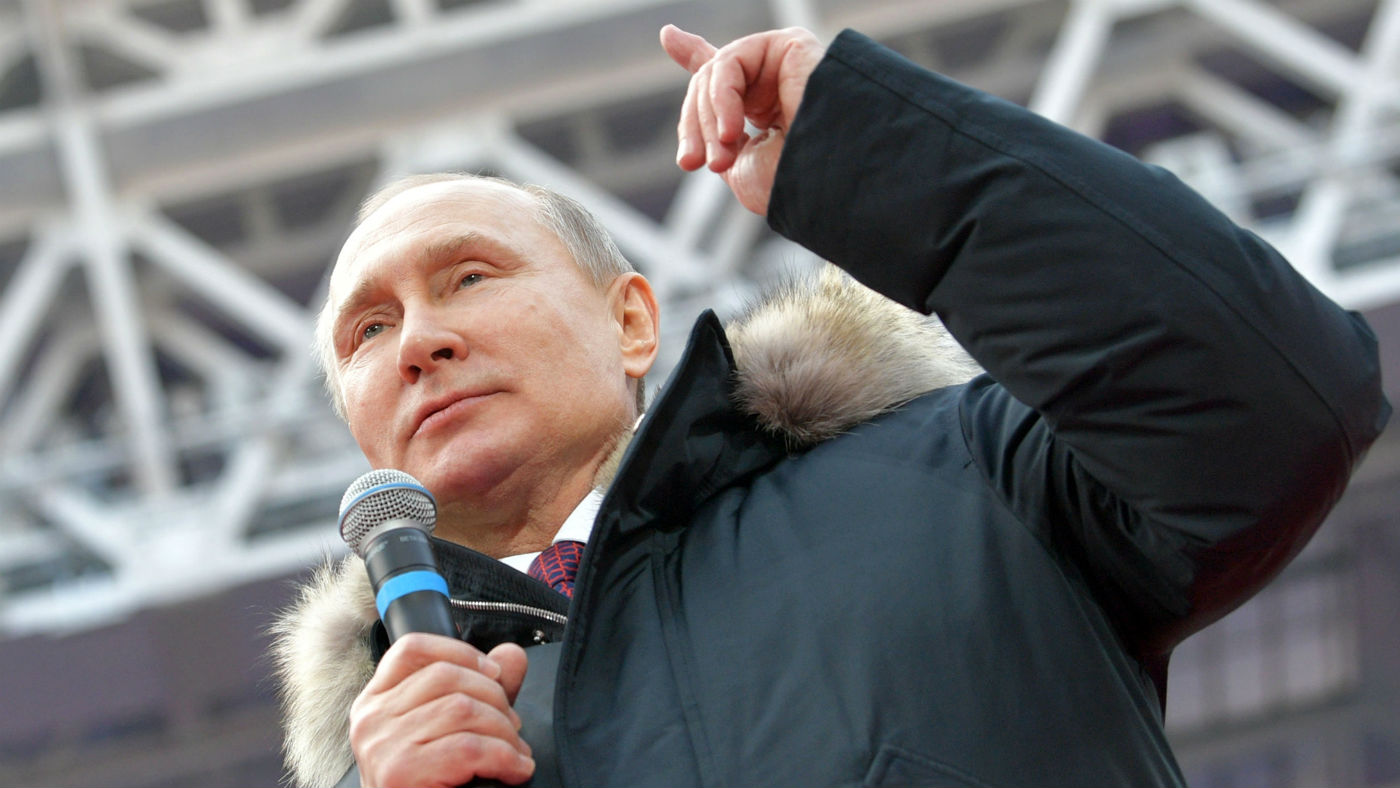How London became a prime destination for Russian ‘dirty money’
MPs say UK turning ‘blind eye’ to Kremlin-connected oligarchs laundering money through capital

A free daily email with the biggest news stories of the day – and the best features from TheWeek.com
You are now subscribed
Your newsletter sign-up was successful
The British government is “turning a blind eye” to Russian “dirty money” being laundered through London, and the threat that it poses to national security, according to a new report by the Commons Foreign Affairs Committee.
Beware of Russian honeytraps, MI5 tells UK business HSBC 'processed £435m of laundered Russian cash'
“The use of London as a base for the corrupt assets of Kremlin-connected individuals is now clearly linked to a wider Russian strategy,” the report said. So how has this been allowed to happen?
The UK financial sector has been a “major beneficiary of the massive flight of Russian cash since the 1991 fall of the Soviet Union”, says Reuters.
The Week
Escape your echo chamber. Get the facts behind the news, plus analysis from multiple perspectives.

Sign up for The Week's Free Newsletters
From our morning news briefing to a weekly Good News Newsletter, get the best of The Week delivered directly to your inbox.
From our morning news briefing to a weekly Good News Newsletter, get the best of The Week delivered directly to your inbox.
The committee of MPs said that the Government’s lenient approach to combating international money laundering allowed London to be used to hide the “corrupt assets” of Russian President Vladimir Putin and his allies, and that the UK’s “lethargic response is being taken as proof that we don’t dare stop them”.
In an article published in The Sunday Times yesterday, committee chairman Tom Tugendhat writes that “London’s markets are enabling the Kremlin’s efforts”.
In a separate statement, the Conservative MP said: “We can no longer allow ‘business as usual’. The UK must be clear that the corruption stemming from the Kremlin is no longer welcome in our markets and we will act.”
The committee’s report notes that on 16 March – two days after the Government announced the expulsion of 23 Russian diplomats from the UK following the poisoning of former Russian spy Sergei Skripal in Salisbury – Russia raised $4bn (£2.97bn) in eurobond issuances, “nearly half of which were bought by investors from the UK”.
A free daily email with the biggest news stories of the day – and the best features from TheWeek.com
A day earlier, Russian energy company Gazprom raised €750m (£656m) in a bond sale, some of which were bought by UK investors, according to VTB Capital, a Russian bank subjected to US sanctions.
“The ease with which the Russian government was able to raise funds in London despite the strong measures that the Government took in the wake of the Salisbury attack raises serious questions about the Government’s commitment to combating Russian state aggression,” the report said.
The MPs have put forward a number of recommendations aimed at tackling the problem, including enacting further sanctions against “Kremlin-connected individuals”, closing loopholes in the existing sanctions regime, and speeding up plans to disclose transparent corporate ownership.
The committee’s findings follow a report published in March 2018 by the National Crime Agency (NCA) that said the UK is a “prime destination” for corrupt senior foreign political figures to “launder the proceeds of corruption, particularly those from Russia, Nigeria and Pakistan”.
The agency also warned that the UK is feeling the effects of money laundering “potentially running to hundreds of billions of pounds” each year, with a considerable threat posed by the “criminal exploitation of accounting and legal professionals involved with trust and company provision”.
NCA director general Lynne Owens said that criminals “are continuing to develop international connections to increase the reach of their activity”, and that the finance sector was “at the heart of this”.